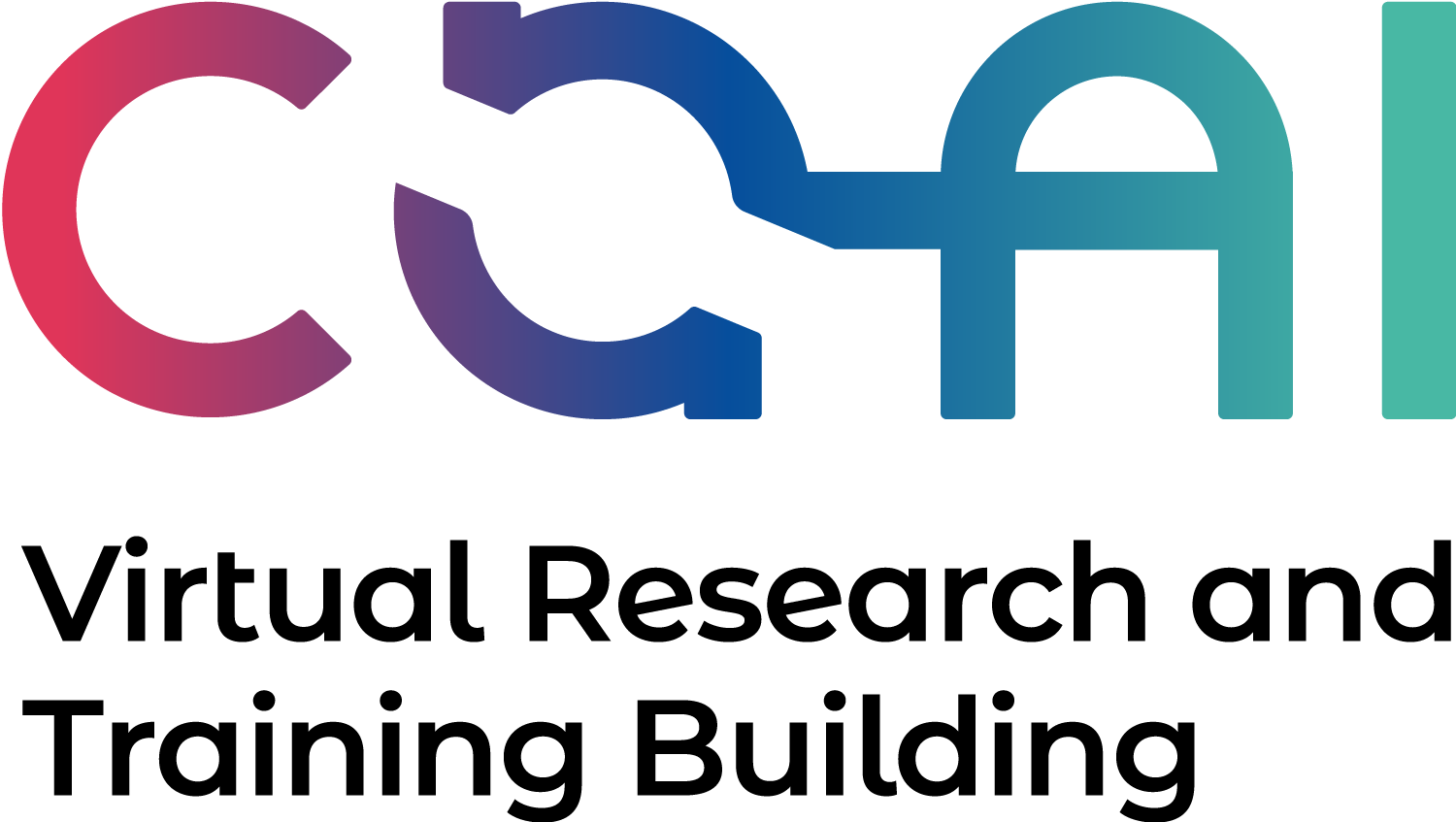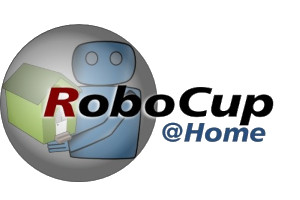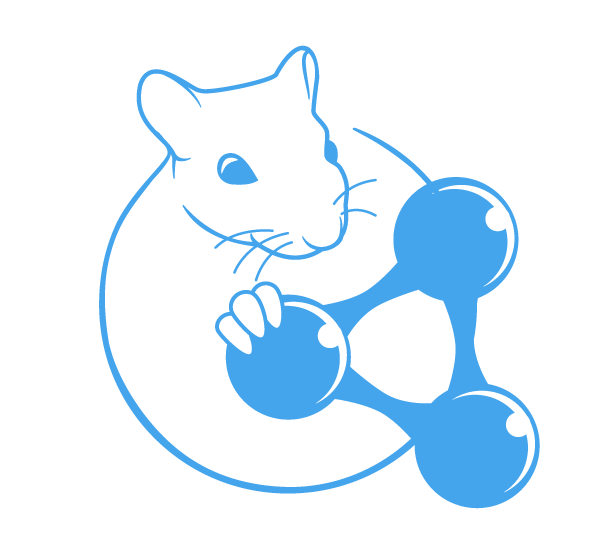Competition Floor
The three partner universities of the CoAI JRC and their members take part in several international competitions relating to robotics, machine learning, and artificial intelligence from multiple angles. Our members are furthermore very active in hosting increasingly popular local competitions such as the Bremen Big Data Challenge (BBDC). Click on the links below to find out more about what our members are doing.
B-Human is a collegiate project at the Department of Computer Science of the University of Bremen and the DFKI research department Cyber-Physical Systems.
ToBI (Team of Bielefeld) and Bremen’s SUTURO Team
will join forces soon. Follow up on it here.
Join the Bremen Big Data Challenge (BBDC) – the annual data analysis competition of the Cognitive Systems Lab at the University of Bremen.
Robocup Soccer Arena: Team B-Human
B-Human Links and News
B-Human is a collegiate project at the Department of Computer Science of the University of Bremen and the DFKI research department Cyber-Physical Systems. The goal of the project is to develop innovative software in order to successfully participate in RoboCup events and also to motivate students for an academic career. Our team consists of students and researchers from the University of Bremen and the DFKI. The RoboCup is a fascinating combination of innovative research and the most popular team sport. Since 2008, we participate in the RoboCup’s Standard Platform League and have competed in the German Open, the European Open, and the RoboCup world championships.
B-Human is currently one of the best teams in the RoboCup Standard Platform League and won the world championship ten times as well as thirteen regional championships. Our work is not only for fun but also covers multiple research topics, such as robot control and machine learning. On our website, you can find links to our publications and open source software releases.
Highlight Video
This video shows some of our highlights during the German Open competition 2023 in Hamburg.
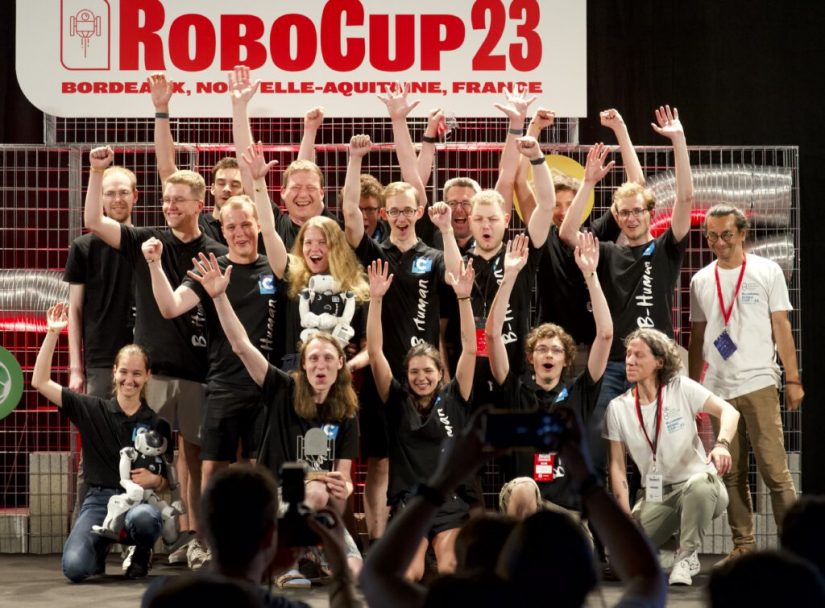
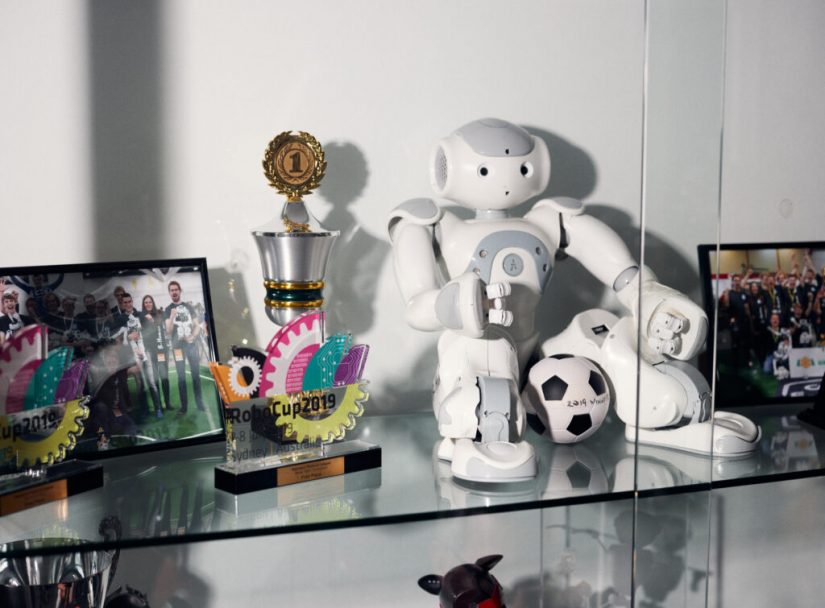
© Luis Scheuch (left image), Patrick Pollmeier / Universität Bremen (right image)
© Luis Scheuch (first image), Patrick Pollmeier / Universität Bremen (second image)
RoboCup@Home
The RoboCup@Home league is a key part of the RoboCup initiative, targeting the advancement of service and assistive robot technology for domestic use. It is the premier international competition for autonomous service robots, with benchmark tests assessing their performance in realistic home environments. Key areas of focus include human-robot interaction, navigation, computer vision, object manipulation, adaptive behaviors, ambient intelligence, standardization, and system integration.
ToBI – Team of Bielefeld
Every year, a team of students and researchers led by CoAI JRC member Sven Wachsmuth competes in the international RoboCup@Home competition. The challenge is to build an autonomous robot that can successfully carry out a series of tasks in a basic non-standardized home environment. Tasks include visually identifying and re-locating household objects, navigating the environment, and interacting and communicating with a human partner.
ToBI provides a good learning opportunity for BA and MA students at Bielefeld University, who can earn course credit for participating in the team. The annual competition provides researchers with an excellent opportunity to test and develop software platforms in cognitive robotics and human-robot interaction that play a vital role in the development of cooperative and cognition-enabled AI.
On the ToBI website you can find more information about the team and the competition, including a full specification of all the platforms and systems used by the team. ToBI has an ongoing cooperation with the SUTURO VaB RoboCup@Home Team of the University of Bremen, including a series of workshops where the two teams meet and work together.
The 2023 RoboCup@Home Competition
ToBI performed very well in the 2023 competition in Bordeaux, taking 5th place in a league of fifteen. You can learn more about the 2023 ToBI robot and team by downloading the Team Description Paper.
Bremen Big Data Challenge
The availability of data, and Big Data in particular, has never been as large and far-reaching as it is today. “Big Data” refers to data sets that are difficult to analyze using traditional data processing methods due to their structure, size, or complexity.
The Bremen Big Data Challenge (BBDC) is the annual data analysis competition of the Cognitive Systems Lab at the University of Bremen. Participants compete for prize money of 1500 euros and attractive non-cash prizes in two separate tracks. Throughout March 2023, participants in the “Bremen Big Data Challenge 2023” (BBDC) crunched through a large dataset from the Alfred Wegener Institute to make accurate predictions about the state of the ocean. For the first time, scientific staff also competed in a separate track.
The goal in each BBDC is to solve such a tricky Big Data task. To do this, a dataset is provided that contains information collected in the past. The challenge is to analyze the primary data from the real world and use the knowledge from the past to predict future information as accurately as possible. The result with the most accurate prediction wins.
To analyse the data in the competition, the BBDC participants rely not only on inferential statistical methods but also on machine learning methods. The combination of both methods makes it possible to uncover hidden knowledge in the data and to use the initially unstructured abundance of information to answer questions and make predictions.


Outlook: Introduction at schools in 2024
Looking ahead, the Cognitive Systems Lab’s organizational team is planning more exciting innovations for the BBDC. A concrete goal for 2024 is to introduce the BBDC to schools in Bremen. With its focus on creative and active learning through tasks and teamwork, the format is ideally suited for high school students, giving them plenty of opportunities to learn about big data and machine learning, without having to go into depth unless they are interested. Further information about recent and upcoming developments, as well as the FAQ can be on the new BBDC website (under construction).
We see the BBDC in many ways growing with the evolution and demands of big data. We are excited to share our fascination with data and its analysis with an ever-growing audience as part of the BBDC, and we look forward to the future challenges. Accordingly, the BBDC is furthermore planning to integrate with the HOBBIT benchmarking system (see below).
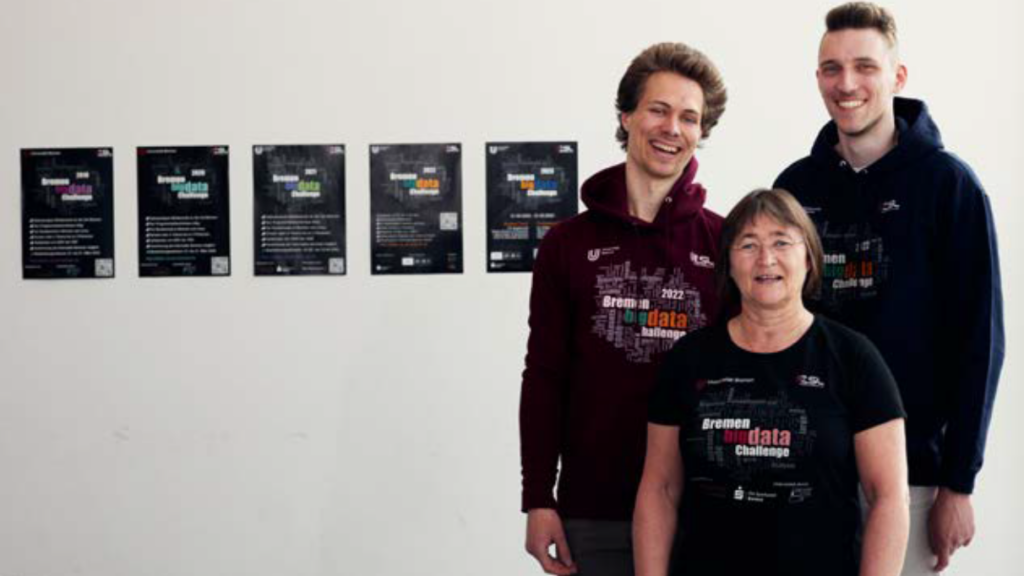
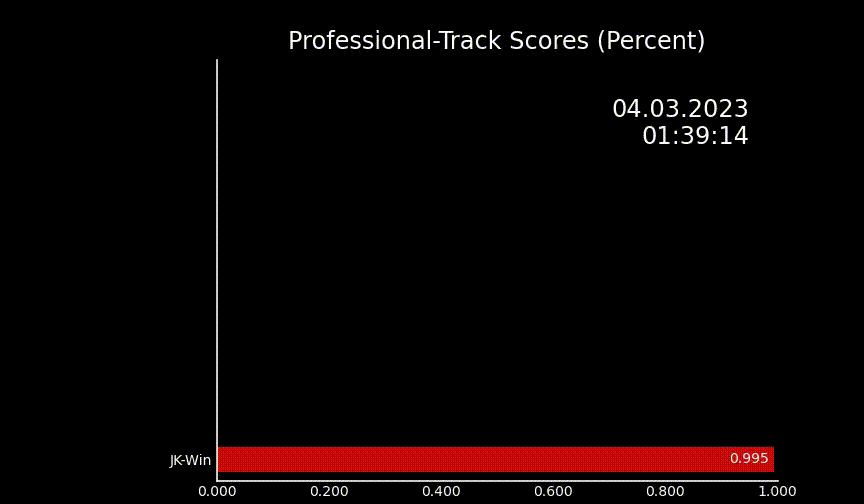
BBDC 2023 Professional Track Leaderboard © CSL; BBDC Organizers Yale Hartmann, Tanja Schultz, and Marvin Borsdorf © Patrick Pollmeier / University of Bremen
BBDC sponsors: Just Add AI, Neuland – Büro für Informatik, and Sparkasse Bremen.
Benchmarking
The more complex systems become, the more important it is to develop benchmarking platforms to enable us to evaluate and compare different approaches and organize competitive challenges. CoAI JRC members offer several platforms of two types: benchmarking services, and controlled environment platforms.
GERBIL
A benchmarking service takes the results of systems for a particular dataset and compares them to the expected results, thereby ensuring that exactly the same metrics are used to measure the performance of all systems. The services developed by CoAI JRC members are open-source, and evaluation results are stored abiding by the FAIR data principles even for important previous approaches that are now off-line. There are three benchmarking services in the GERBIL family:
In the area of knowledge extraction, GERBIL is used to evaluate Entity Recognition, Entity Linking and Relation Extraction approaches. It implements clients for AIDA, FOX, DBpedia, and other approaches, and has been used to run the Open Knowledge Extraction challenges. Read more here.
GERBIL QA is a platform for evaluating Question Answering approaches, which has been used to support the QALD challenge. Read more here.
HOBBIT
HOBBIT is a distributed benchmarking platform that offers a controlled environment for evaluating systems, allowing us to compare the effectiveness and efficiency of different systems in a fair way. HOBBIT is designed for the unified execution of benchmarks for Linked Data solutions. HOBBIT is also based on the FAIR principles and is the first benchmarking platform able to scale up to benchmarking real-world scenarios for Big Linked Data solutions. This has made it a good platform for organizing numerous challenges comparing systems of various research areas, ranging from knowledge extraction over machine learning and ontology matching to triple stores.
Overview paper: Michael Röder, Dennis Kuchelev, Axel-Cyrille Ngonga Ngomo, “HOBBIT: A platform for benchmarking Big Linked Data,” in Data Science v. 3(1), 2020.
